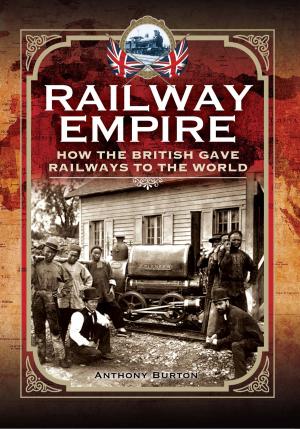Tracing Your Canal Ancestors
A Guide for Family Historians
Nonfiction, Reference & Language, Reference, Genealogy, History| Author: | Sue Wilkes | ISBN: | 9781844686988 |
| Publisher: | Pen and Sword | Publication: | December 13, 2011 |
| Imprint: | Pen and Sword | Language: | English |
| Author: | Sue Wilkes |
| ISBN: | 9781844686988 |
| Publisher: | Pen and Sword |
| Publication: | December 13, 2011 |
| Imprint: | Pen and Sword |
| Language: | English |
Britain’s industrial revolution depended on canals for the cheap movement of materials and goods – until the coming of the railways. Canal companies struggled to compete and went into a long decline, but much of the canal network is still with us today, and interest in the history and heritage of canals - and those who worked on them - is strong. That is why Sue Wilkes’s well researched and highly readable handbook on the subject is so valuable.
She concentrates on the people who lived and worked on the waterways – the canal boatmen, their families and their way of life - and those who depended on the canal trade for a living – the lock-keepers, toll collectors, and canal company clerks. She provides a thorough, practical guide to the sources – the archives, books, websites, societies – available for researchers if they are studying our inland waterways, or trying to find out about an ancestor who worked on the canals or was connected with them.
Her book is essential reading for anyone interested in this aspect of the industrial past.
Britain’s industrial revolution depended on canals for the cheap movement of materials and goods – until the coming of the railways. Canal companies struggled to compete and went into a long decline, but much of the canal network is still with us today, and interest in the history and heritage of canals - and those who worked on them - is strong. That is why Sue Wilkes’s well researched and highly readable handbook on the subject is so valuable.
She concentrates on the people who lived and worked on the waterways – the canal boatmen, their families and their way of life - and those who depended on the canal trade for a living – the lock-keepers, toll collectors, and canal company clerks. She provides a thorough, practical guide to the sources – the archives, books, websites, societies – available for researchers if they are studying our inland waterways, or trying to find out about an ancestor who worked on the canals or was connected with them.
Her book is essential reading for anyone interested in this aspect of the industrial past.















